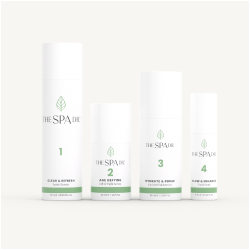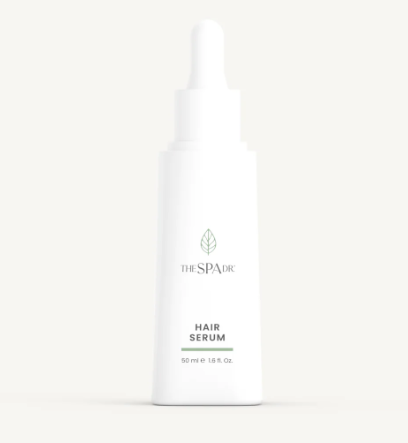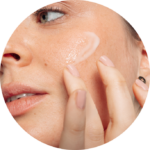When you look in the mirror to brush your teeth or wash your face each morning, what do you see? Your biggest organ – your skin.
Your skin covers and protects your entire body. I imagine you want to take care of it for a clear complexion and graceful aging.
If you’re concerned about your skin, you’re not alone. The global skincare market was estimated to be worth about $121 billion in 2016, according to Statista, and global spending on anti-aging products is estimated to reach $291.9 billion by 2018, according to a Global Industry Analysts report. This high spending is a good indicator that people around the world care about their skin.
But, just because you’re spending money doesn’t mean you’re doing it right. Did you know that common skin care regimens can actually damage your skin and cause internal health problems as well?
The 5 Most Common Skincare Mistakes
1. Suppressing skin problems and not addressing the underlying triggers
As much as I love my dermatologist friends, I must admit that this is a mistake most dermatologists make. Suppressing skin problems with antibiotic and steroid treatments is common in dermatologists’ offices. When our skin is unhealthy, it is giving us a sign that something is wrong internally. When we ignore those signs, the problem may become much worse. I’ve seen many patients with eczema, for example, suppress the symptom only to later develop other inflammatory diseases such as asthma and arthritis. If we address the inflammation from the inside out instead, then we allow the body to heal.
2. Creating “skinflammation” with the foods you eat
The most commonly consumed foods in the American diet are some of the biggest triggers for skinflammation: gluten, dairy, and sugar. In case you haven’t heard me talk about skinflammation, I’m referring to internal inflammation that leads to chronic skin problems, such as acne, rosacea, eczema, dry skin, and premature aging. What’s more, many people have sensitivities to one or more of these foods. Even a mild sensitivity creates inflammation inside your body, and skinflammation often follows. Not everyone reacts to these three foods but I find that most people who have chronic skin problems react to at least one of them.
3. Disturbing your skin’s pH balance, causing breakouts and premature aging
The pH of healthy skin ranges from 4 to 6.5. This mild acidity helps prevent overgrowth of harmful bacteria and support the skin’s strength and structure. Maintaining a healthy skin pH can prevent acne breakouts and helps our skin to continue looking young and vibrant. Many commonly used skincare products are too alkaline, disturbing the mildly acidic environment our skin needs to flourish. For example, soaps that lather are typically alkaline. On the other hand, mildly acidic skincare products help maintain a healthy skin pH balance.
4. Damaging your skin’s microbiome (the natural microorganisms that help your skin look healthy)
You’ve probably heard of the gut microbiome or the importance of probiotics (beneficial bacteria) for your digestive system. Similarly, your skin has its own microbiome, with a delicate balance of microorganisms that helps keep it healthy. With all of the antibiotic medications, antimicrobial soaps, hand sanitizers, and cleansing agents, it’s easy to damage your skin’s microbiome. When that happens, you’re more likely to develop both acute and chronic skin problems, such as acne and various types of dermatitis.
5. Causing hormone imbalances, which is the last thing any of us need as we age
Most popular skincare products used today contain endocrine disrupting chemicals (EDCs), which are known to cause hormone imbalances. As we age, our hormones are already thrown off balance, and we further complicate this with exposure to EDCs. Even though you may think that something you apply to your skin stays only on your skin, you can actually absorb these chemicals directly into your bloodstream. Then, these chemicals can wreak havoc on our hormones, leading to problems with thyroid, adrenal and sex hormones. EDCs have been linked to a number of health problems including hypothyroidism, infertility, menstrual irregularities, early menopause, and certain cancers. Fortunately, there are alternatives, but the first step is to look more carefully at what you put on your skin.
7 Simple Steps to Start Today to Avoid Common Skincare Mistakes
- If you have a skinflammation condition that won’t clear up, try eliminating gluten, dairy, sugar, and processed foods for 14 days. Then, watch your skin. If it shows even slight improvement, that’s a good indication one of these foods is a problem for you.
- In addition to watching the common trigger foods, consuming organic antioxidant-rich colorful veggies and high-quality fats such as from avocados, olives, and wild fish can help calm skinflammation.
- Maintain hormone homeostasis by managing stress, eating a balanced and nutrient-rich diet, and exercising routinely. In addition, ensure healthy hormone metabolism via well-functioning liver detoxification pathways to help balance hormones.
- Consider taking a high-quality multi-vitamin/mineral supplement and other supplements such as Omega 3’s to fill in any possible nutritional gaps in your diet.
- Eat fermented foods (such as kimchi and sauerkraut) and consider taking a high-quality probiotic supplement to nourish your gut microbiome, which, in turn, helps your skin microbiome.
- Avoid ingredients that have endocrine disrupting effects such as oxybenzone (found in most sunscreens), parabens, phthalates, and synthetic fragrances.
- Find natural skincare products that are also pH balanced to promote skin health. My skincare line is available now. Click Here to learn more!
I’m committed to helping you achieve glowing skin and vibrant health. If you feel like you’ve tried all of these or are overwhelmed and want support.








Reader Interactions
What is your opinion of glycolic peels? I have melasma.
My daughter has melasma caused by birth control pills, is there anything that can be done to get rid of this?
Belinda, birth control pills can create hormone imbalances that can show up on our skin and in other ways. Melasma can be treated by balancing hormones and addressing any nutritional deficiencies. There are a lot of layers to treating melasma. I will add that to my list of blog topics for the future.